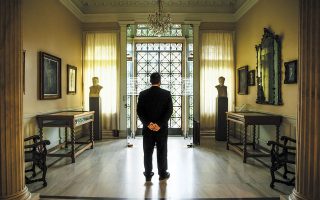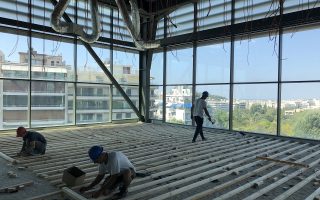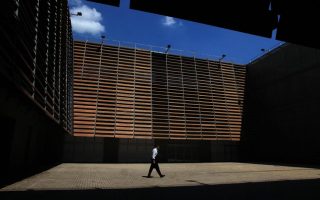Kostas Prapoglou: A curator making art blossom in the city
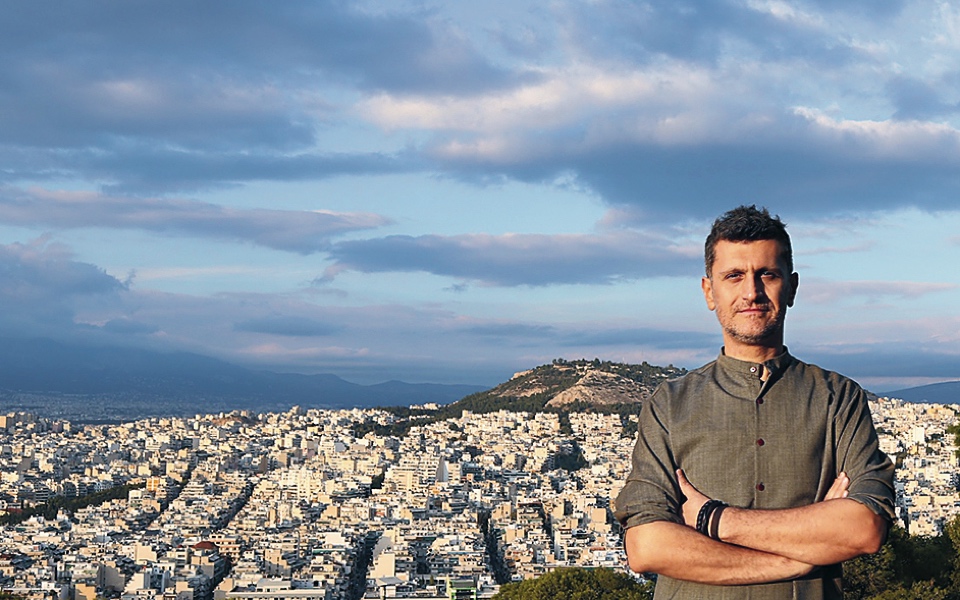
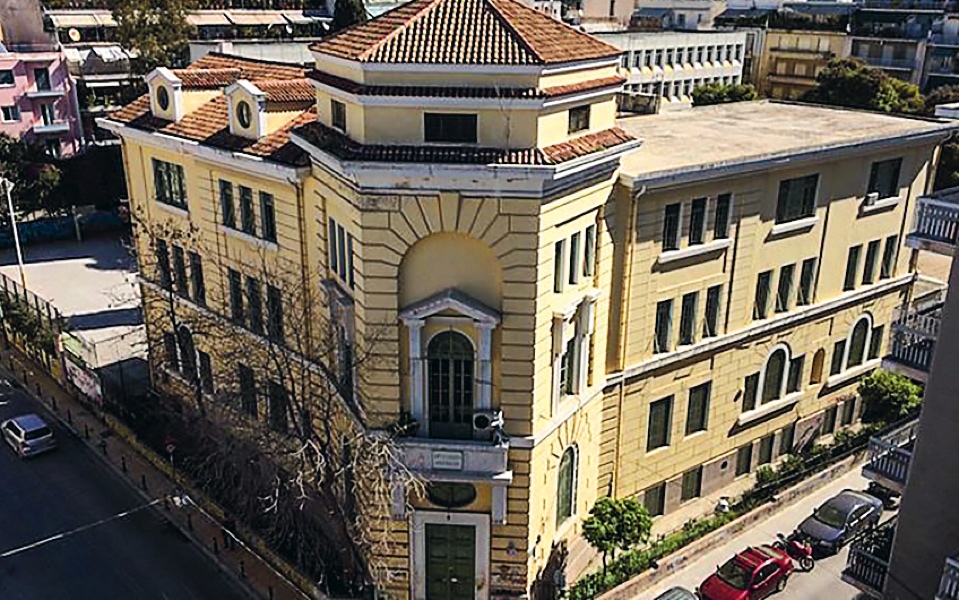
Kostas Prapoglou’s apartment in the downtown Athens district of Kypseli really is the “time capsule” he describes. It looks out over the openness of Fokionos Negri Square and is a perfect period piece of 1960s middle-class Athenian residential architecture. It is the ideal location for the art curator, who, having spent 18 years in London, came back a few years ago looking for a way to reconnect with the city in a chameleon of a neighborhood: dynamic and decrepit, inhabited both by older Athenians and new migrants, exuding the air of the past, but also the present.
“What excited me most was its incredible building stock,” says Prapoglou, explaining how Kypseli’s architectural legacy inspired a fascinating line of inquiry. Padlocked doors, shuttered detached houses and other buildings with an evident past became a field of exploration for the art historian. In contrast to the modus operandi of many of his colleagues – particularly among the older generations – who feel safest inside the walls of museums and galleries, Prapoglou believes that contemporary art must blossom where you least expect it, it must sprout like a weed in unorthodox places, charged with memories, with ghosts that need to be vanquished and residents that have nothing to do with all this.
He has organized some very interesting exhibitions since his return to Athens: in 2017 at the former Zarifi family residence on the corner of Eptanisou and Andros streets and in 2018 at the interwar complex of the 15th Kypseli High School and at an industrial building in Kerameikos that usually serves as a music venue. The way he goes about his work is simple. He selects a space and conducts detailed research into its history, which in turn inspires the conceptual and artistic context of the show. A man of the now, he prefers to work with an empty shell waiting to be brought back to life than to seek new spaces. This is not dictated only by the notion of reuse, but also by how the things experienced by people before us can still be poignant today, on today’s own terms.
What stands out as so important right now about Prapoglou’s approach, in the midst of the lockdown, is the idea of conquering the urban environment by walking around it, observing it and being sensitive to your surroundings. Everything around us has a story. Most of us cannot hear it because we haven’t the time, the inclination or the curiosity to stand in front of an abandoned house to carefully peruse a balcony or a garden – not as flâneurs pondering the associations around us, but as protagonists of the landscape just beyond our front door.
